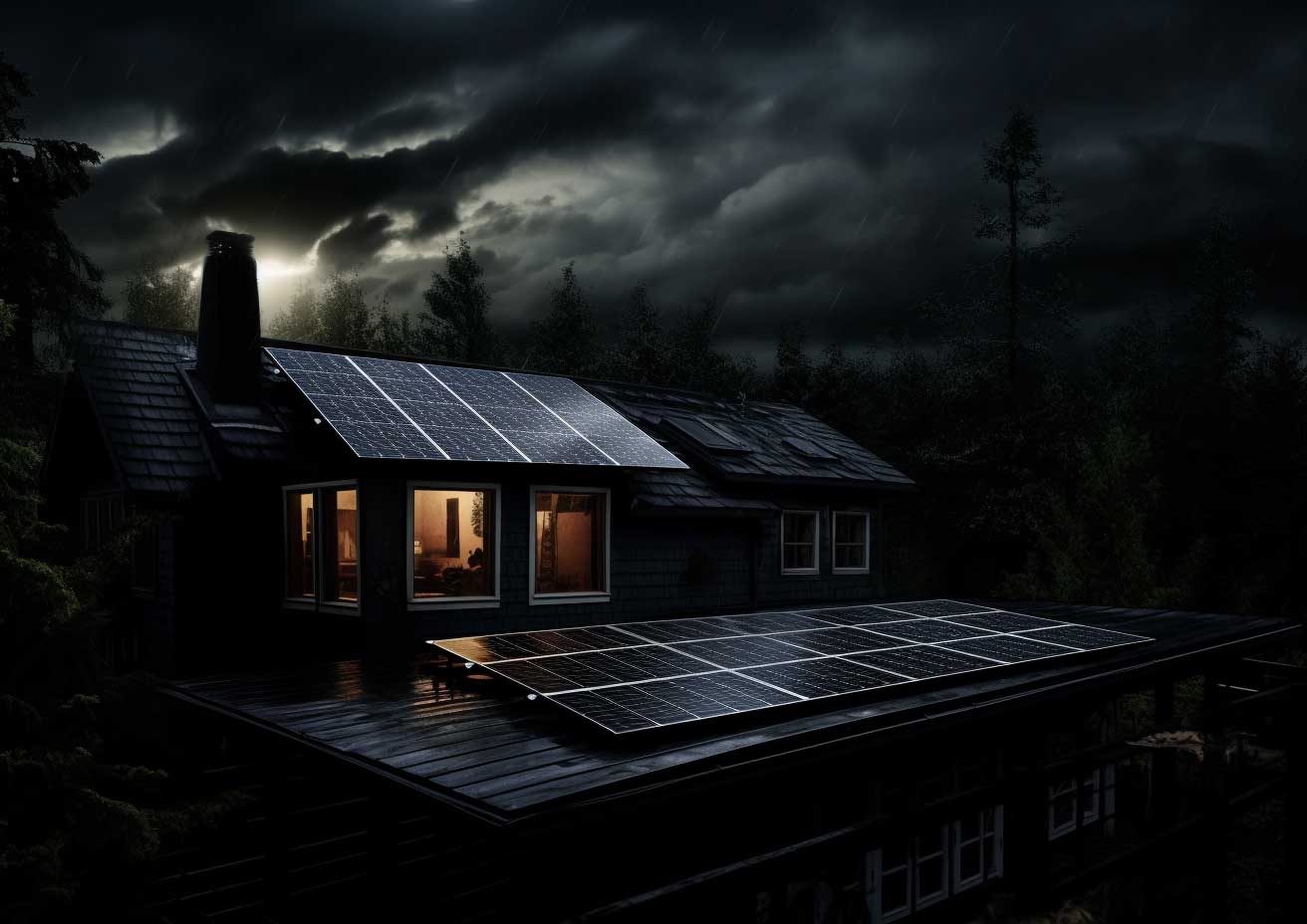Electric vehicle (EV) adoption can’t continue to grow as rapidly as it has without the EV charging infrastructure to support it. In the United States, the EV infrastructure is growing every day as the demand for charging increases. The federal government, state governments, and other organizations are pushing for the expansion of EV charging infrastructure and electric mobility. The recently passed Inflation Reduction Act includes many laws that target EVs and EV charging, including an update of the EV tax credit.
Two EV charging companies that have a big impact on the increasing infrastructure are EVgo and Chargepoint. Which company has better chargers and how do they compare? Whether you’re a new or old EV driver, or perhaps haven’t purchased your electric car yet, you’ll want to learn how the two EV charging networks compare. Read on as we look at EVgo vs ChargePoint and go into their differences and similarities.
EVgo vs ChargePoint Number of Locations
ChargePoint is by far the largest EV charging network in the United States. That doesn’t necessarily mean it is better than EVgo, but chances are you will come across more ChargePoint EV chargers in your travels than EVgo’s. Chargepoint has 18,000 charging locations in the US, while EVgo has 850 charging locations. Each charging location can be home to many chargers, so keep in mind the location count does not take into account each public charger at that location.
Book Your No-Cost EV Charger Consult Now
WattLogic is your go-to destination for all electric vehicle (EV) charging needs. We offer comprehensive, end-to-end EV charging solutions for both businesses and homeowners. Connect with us today!
EVgo offers partner roaming, which gives EVgo customers access to more than 46,000 Level 2 and DC fast chargers, including ones from partner roaming networks. So far ChargePoint is the network EVgo drivers can enjoy roaming access on. EVgo does plan to enable roaming access on the EV Connect network next.
You’ll find public EV charging stations from both companies in retail locations, hotels, shopping centers, parking garages, and supermarkets among many other convenient locations.
EVgo vs ChargePoint Types of Chargers
ChargePoint was founded in 2007, while EVgo was founded three years later. That could explain why ChargePoint has Level 1 EV chargers in their lineup of chargers, while EVgo has none and, instead, only offers faster charging options.
These are the types of chargers Chargepoint offers: Level 1, Level 2, DC fast charging with a CHAdeMO connector, and DC fast charging with a combo connector.
EVgo offers Level 2, DC chargers with combo connectors, DC chargers with CHAdeMO connectors, and DC chargers with Tesla connectors.
ChargePoint and EVgo are tied for the third position for the most DC fast charging ports in the United States. Tesla Supercharger is number one, with Electrify America taking the second spot.
For a quick review, in case you are unfamiliar with the types of EV charging levels, here is a quick explainer. A Level 1 charger comes standard with the purchase or lease of an EV and can take upwards of 24 hours to fully charge an electric car. A Level 2 charger can charge an EV up to 15x faster than a Level 1 charger and adds a range of 15 to 75 miles per hour of charge. Level 2 chargers can be found at homes and in public charging station locations. A DC fast charger, which is sometimes referred to as a Level 3 charger, is the fastest level of charging currently available and can charge 80% of an EV’s battery in as quickly as 10 minutes.
ChargePoint’s Pricing Information
How much does ChargePoint charge?
The rate you pay to charge at a Chargepoint station varies. Each ChargePoint EV charging station is independently owned and prices are determined by the public charger owner. Some stations are free, some offer discounted rates, while others charge by the time or by kilowatts (kWh), and others vary their price depending on the electricity rate of the moment you’re charging.
Each EV charging station’s cost can be found before charging on the Chargepoint app.
How to activate and pay for ChargePoint public charging?
To pay for charging with a Chargepoint charger you will need to sign up for a free ChargePoint account. You’ll provide payment information which will be accessed whenever you charge. The first time you use a Chargepoint station with a fee, you’ll be charged $10 to keep as a balance on your account. If you only use free stations or charge at home with your ChargePoint Home Flex, you will never be charged the $10.
To pay you can use a Chargepoint card which is sent to you when you sign-up for an account or your Chargepoint app.
EVgo’s Pricing Information
How much does EVgo charge?
EVgo has three main pricing options – Pay As You Go, EVgo Member, and EVgo Plus. In California, Florida, and Texas, you’ll have added membership options, including EVgo Basic and EVgo PlusMax. They all require you to sign up. If you do want to charge without becoming a member you can pay with your credit card and you’ll be required to pay a $2.99 transaction fee. EVgo charges per kWh and per minute. Prices and ways of being charged depend on where you live.
In California, you pay per kWh and prices vary based on Time-Of-Use (TOU) rates. Everywhere else, you’ll be charged by the minute. Only the city of San Diego has the additional two plans mentioned above.
With the Pay As You Go plan you’ll have to pay a $0.99 session fee every time you charge. If you want to reserve a charger so you know it’ll be available when you need it, you’ll pay $3.00 for reservations. The prices range from $0.32 – $0.39 per kWh in California. Everywhere else the range is $0.29 – $0.35 per minute.
With the EVgo Basic plan, you’ll be charged $0.99 a month and reservations are $3. There are no session fees. In San Diego, the Basic plan is $0.43 per kWh. In Florida, it is $0.32 per minute. In Texas, it is $0.28 per minute.
With the EVgo Member plan, you’ll be charged a prepaid charging credit of $4.99. Reservations are $3. Prices range from $0.29 – $0.35 per kWh in California. The prices everywhere else range from $0.25 – $0.31per minute.
With the EVgo Plus plan, your per minute/kWh rate will be discounted and you won’t be charged a session fee. The membership is $6.99 per month. You won’t be charged for reservations. Prices in California range from $0.25 – $0.30 per kWh. Prices everywhere else range from $0.22 – $0.28 per minute.
Book Your No-Cost EV Charger Consult Now
WattLogic is your go-to destination for all electric vehicle (EV) charging needs. We offer comprehensive, end-to-end EV charging solutions for both businesses and homeowners. Connect with us today!
With the EVgo PlusMax plan, there are no session or reservation fees. The per minute/kWh rate will be discounted to a lower price than the Plus plan. The membership fee is higher at $12.99 per month. In San Diego, it costs $0.23 per kWh. In Florida, you’ll pay $0.26 per minute. In Texas, it is $0.22 per minute.
EVgo Rewards
EVgo offers a rewards program, which ChargePoint does not. You earn 50 points for joining the program. For every dollar you spend you earn five points. Points can only be earned at EVgo chargers and not at partner roaming chargers. You can also earn five points for shares, tweets, or retweets with a 30 points maximum per month. You can also earn five points for every EVgo website page view with a 30 points month limit. You earn 25 points on your birthday. Every 2,000 points earn you $10 in charging credit.
EVgo vs ChargePoint Commercial EV charging
For businesses considering investments in EV charging stations, the multitude of benefits they offer makes them an excellent investment opportunity. EVgo and ChargePoint both offer excellent commercial EV charging options. Both companies provide turnkey Charging as a Service packages that include installation, EV charging hardware, EV charging software, site design, site commissioning, ongoing monitoring, and maintenance. They offer commercial solutions for retail businesses, multifamily properties, hotels, parking lots, gas stations, convenience stores, grocery stores, and fleet operations.
EVgo only offers commercial fast chargers from 100 kW to 350 kW. ChargePoint offers Level 2 and DC fast chargers.
ChargePoint offers ChargePoint as a Service, which is like a subscription service for EV chargers. Your subscription will include ChargePoint software, hardware, and services. You pay no upfront costs. Then, you’ll have to work with ChargePoint and a third-party investor to set up charging infrastructure. ChargePoint requires a cloud plan to connect to the ChargePoint network and receive the latest software updates. You will have to pay for their maintenance and management program called Assure. You can determine pricing and how you want to control access to your chargers.
EVgo also offers a similar turnkey package that includes initial consultation, site design, equipment procurement, site construction, utility interconnection, site commissioning, and ongoing maintenance. You have two financing options with EVgo – Customer-owned or Charging-as-a-Service. With the Customer-owned financing package, you will spend an upfront cost for the hardware and installation, you’ll also have to pay a monthly fee for operations. With Charging-as-a-Service, you will have no upfront costs and pay a monthly fee that covers hardware, installation, and ongoing operations by EVgo. You cannot determine pricing. Pricing is usually based on regional utility costs.
If you’re exploring commercial EV charging options beyond these, WattLogic offers a range of financing solutions and a unique Charging as a Service program. Our service goes beyond the standard offerings of EVgo or ChargePoint. We take a personalized approach, tailoring our selection of EV chargers to meet your specific needs. Additionally, we handle the research and application process for EV charging rebates on your behalf, allowing you to benefit from even greater savings on your EV charging station installation. Streamlined and effortless, our virtual survey can be completed on your phone within minutes. Discover more about our comprehensive commercial EV charging solutions.
Why home charging is better than public charging
As evident from this EVgo vs ChargePoint comparison, both EV charging networks have their strengths and weaknesses. Ultimately, the deciding factor may simply be the availability of a network near your location.
Accessing public EV charging stations can sometimes be inconvenient, particularly when you find yourself unwilling to spend twenty minutes or more waiting for your car to charge. This inconvenience is further magnified during late hours. Unfavorable charging experiences like these contribute to the inherent drawbacks of relying solely on public charging for EV owners.
Charging an EV using a home charging station is the optimal approach. Charging at home offers unparalleled convenience, simplicity, safety, and enjoyment. One of the greatest perks of being an EV driver is the ability to charge right from the comfort of your own driveway or garage. No more deciding whether to endure the hassle of visiting a public charging station in harsh weather conditions. Additionally, home charging saves you money compared to public charging, while ensuring your car is always fully charged when you need it.
Experience hassle-free home EV charging installation with our assistance. We will customize the EV charger to meet your requirements and dispatch one of our verified and licensed electricians to install it professionally. Our service includes finding you utility rebates and incentives as well. Begin today by completing our concise online survey. There’s no obligation, and once you’ve answered a few questions, we’ll promptly provide you with a quote. Say goodbye to the hassle of calling multiple electricians, scheduling visits, and waiting for responses.




